The Best Sustainability Initiatives We’ve Seen In The Drinks Industry
Climate change is nothing new, however, over the last few years, we’ve seen some real social awareness and also social pressures around the impact that consumerism is having on the environment.
One of the sectors being hit hard by this coverage is the drinks industry.
Plastic straws, single-use plastic cups, and large festivals that produce huge quantities of waste have been under fire in recent years and while all industries have a responsibility to step up and make a change for the better, it’s fair to say that the drinks industry is definitely making a serious effort to be more sustainable.
This is true from the perspective of operators, distributors, promoters and drinks brands themselves. Between 2020 – 2022 we’re seeing initiatives that are solely focused on sustainability and in this article, we’ll be highlighting some of the best sustainability initiatives we’ve seen in the drinks industry.
What Are The Best Sustainability Initiatives We’ve Seen In The Drinks Industry
Below we’ve put together a list of six of the best sustainability initiatives we’ve seen so far in the drinks industry. These are improving at a rapid rate due to the pressures of social responsibility alongside advancements in technology and innovation
1. Snap Packs
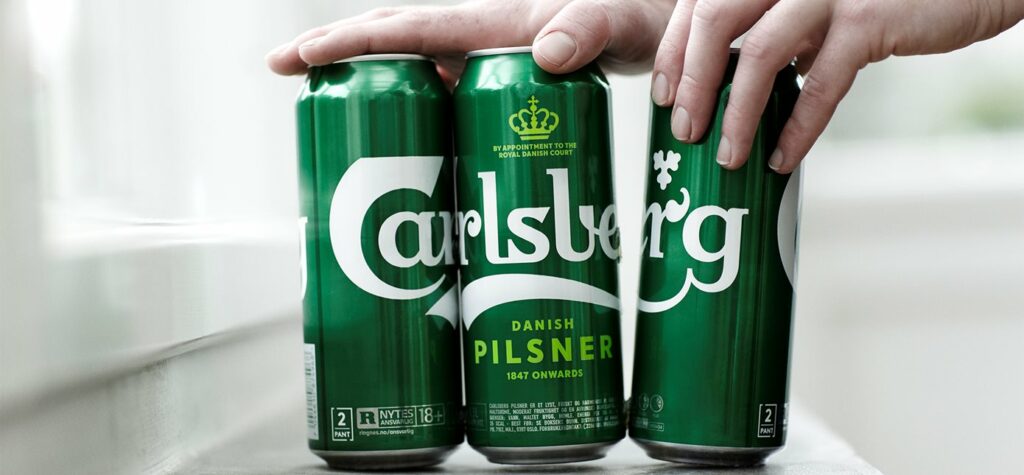
First on the list is from Danish lager producer Carlsberg. Anyone reading this will be fully aware of the impact plastic can rings have had on the environment, particularly in terms of our sea life.
These plastic rings keep cans neatly packed together for our convenience, yet once they are used and end up in the ocean, they become a heavy risk to the lives of any sea creatures that come across them. Carlsberg has therefore led the charge on this front with their revolutionary snap packs.
Removing the plastic rings completely, Carlsberg is using a patented glue to hold their cans together meaning they can still be easily stored, distributed and handled but don’t come with the dreaded plastic rings attached.
The glue is applied to the outside of the cans to still allow for multipacks and the key bottom line – 76% saving in plastic waste compared to previous multipacks and an estimated 1200 tonnes of plastic waste saved annually (equivalent to 60 million plastic bags).
Find out more about Carlsberg’s snap packs
2. Sustainability With Stoli Campaign
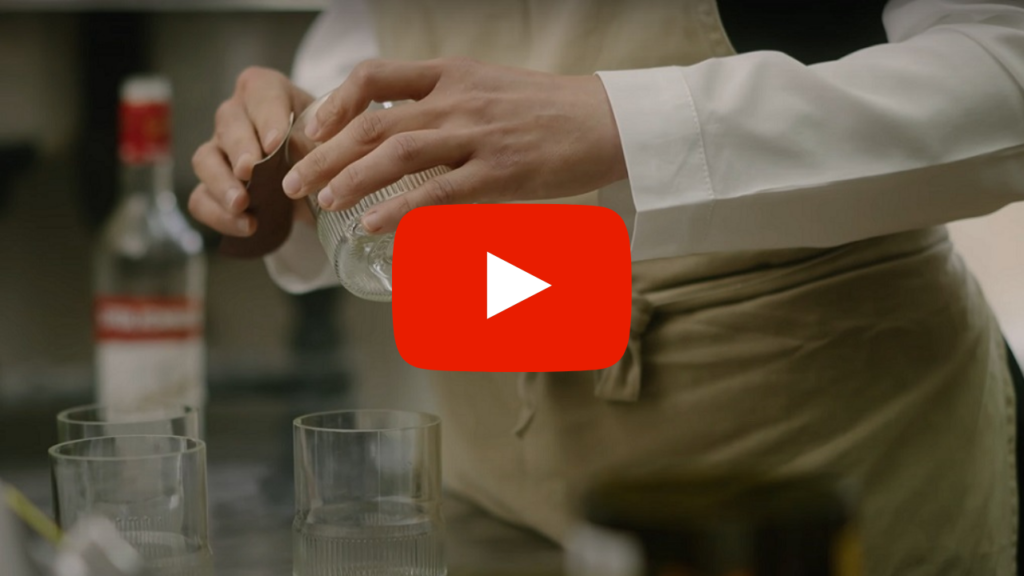
Stoli Vodka is working to become a leading voice in drink brand sustainability. The Cocktail Service were able to assist Stoli by creating a global sustainability strategy for the brand, including new sustainable cocktail recipes using Stoli products.
More recently, we teamed up with Stoli and London bar Murder Inc for a three part series designed to educate the on-trade bar industry on best practices when it comes to sustainability.
Focused around three pillars of Where, How & Waste the campaign was translated into an accessible playbook to show the on-trade how to reuse ingredients and reduce waste.
Watch the three part series on Youtube
3. Carbon Neutral & Negative Emission Production
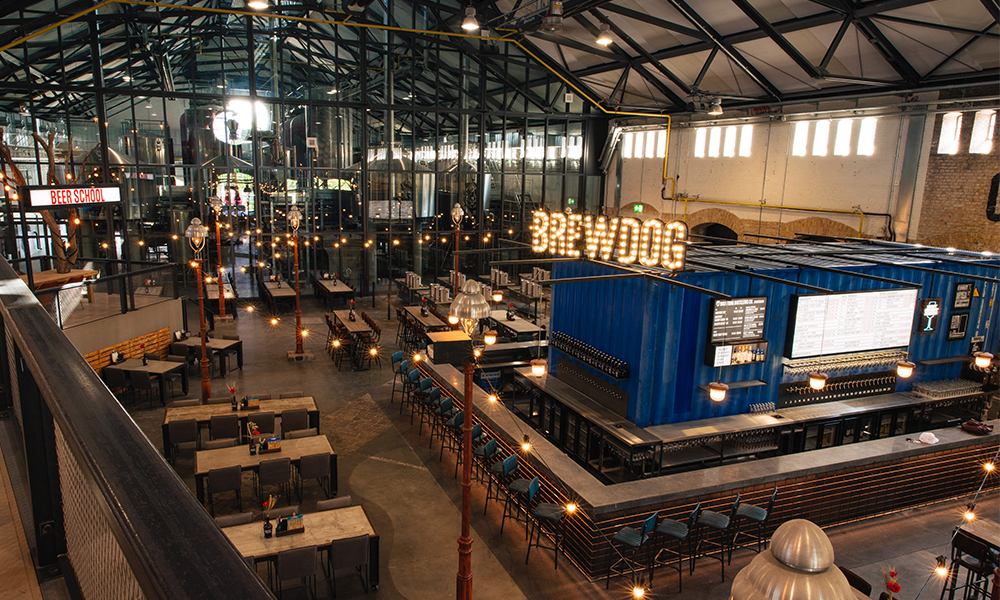
Many drinks brands have committed to carbon-neutral production as part of 3-5 year operating plans. This means the amount of carbon produced is offset by processes the companies put in place such as recycling initiates.
One company in particular though have taken this to the next level and have in place a carbon-negative footprint. BrewDog has become the first carbon-negative beer brewer but what exactly does that mean?
Essentially, this means they remove more carbon from the air than what they emit through production/transportation. Some of the systems they have in place to achieve this include:
- A state of the art eco brewery
- They brew beer using renewable energy like wind power
- Purchased 2,000 acres of land to plant over 1 million trees in the Scottish highland
- Work with global partners to plant trees and improve the ecosystem
- Working with pubs and bars stocking BrewDog products to help them calculate and reduce their footprint as part of the “PLANET FIRST LOCALS” initiative
- Provide education for staff including tools to track their own individual carbon footprints and advise on ways to reduce it
Any effort to become carbon neutral should be commended and BrewDog leading the charge on becoming carbon negative and taking steps to not just neutralise their impact but actually improve the air quality of the planet in the process is definitely something we expect to see other brands and producers follow suit with.
One brand in particular already doing this is Sampling Vodka. For every bottle of Sampling vodka (London-based company) sold, a tree is planted in its place. A unique code on each bottle lets the customer know where the tree was planted so that the consumers can feel like they are also contributing – definitely a nice touch.
Read more about Brewdog’s sustainability plan
4. Cardboard Bottles
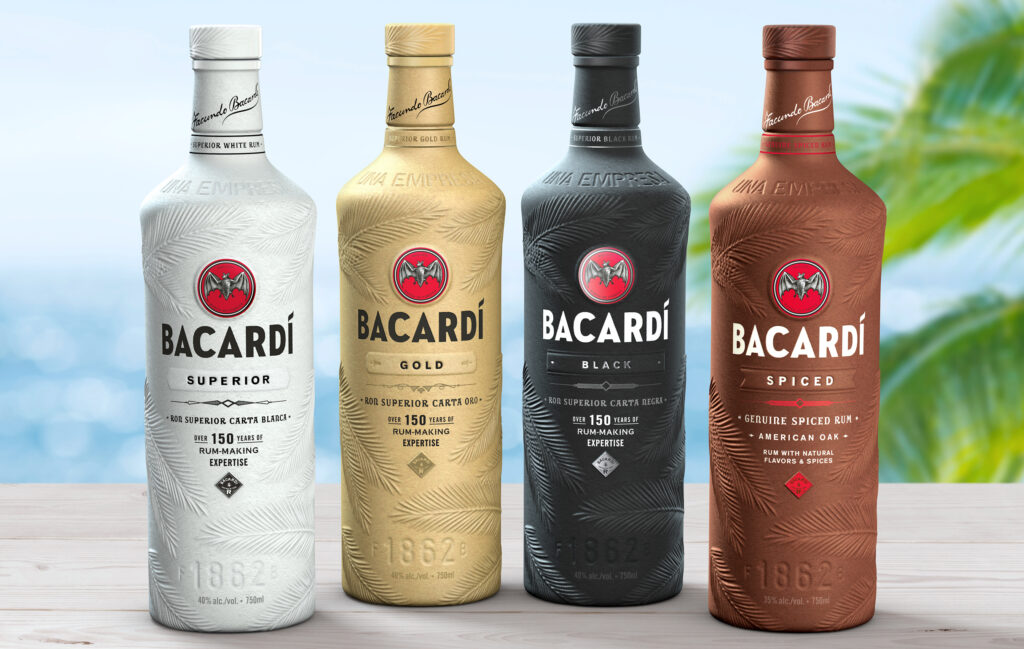
Glass production for wine and spirit bottles are one of the biggest causes of carbon emissions within the drinks industry. Not only does it take more power to manufacture these glass bottles, but it’s also a significant emission cost during transportation due to glass bottles weighing more!
Therefore, to combat this, drinks brands have been looking into glass alternatives for their products. Canned and boxed wine is a growing category and we can easily see how this transition will work well for the RTD market, however, spirits still pose a challenge due to long shelf life and a need for solid packaging.
Bacardi is the first key player in the industry to make a move and at the back-end of 2020, they launched the first 100% biodegradable spirit bottle.
Bacardi state that in a bid to become the most sustainable spirit bottle by 2023, their 100% biodegradable bottle will:
“Replace 80 Million plastic bottles – 3,000 tons of plastic – currently produced by Bacardi across its portfolio of brands every year.”
This biodegradable bottle takes just 18 months to biodegrade due to the biopolymer bottle that maintains structural integrity to house the liquid but long term will biodegrade in order to be a significantly more sustainable option than glass.
Further to this, they are also using this technology to create a paper spirit bottle so watch this space as Bacardi maintains the paper bottle will maintain the same taste for the spirit though will of course be significantly more sustainable than glass or plastic alternatives.
One company already leading the charge on this (but to a significantly less publicised level) is SIlent Pool Distillers with Green Man Woodland Gin. The gin bottle is made from an outer layer that is 94% recycled paper. This paper can then be recycled with the company stating the carbon footprint for this packaging is six times lower than glass or PET.
5. rPET Packaging
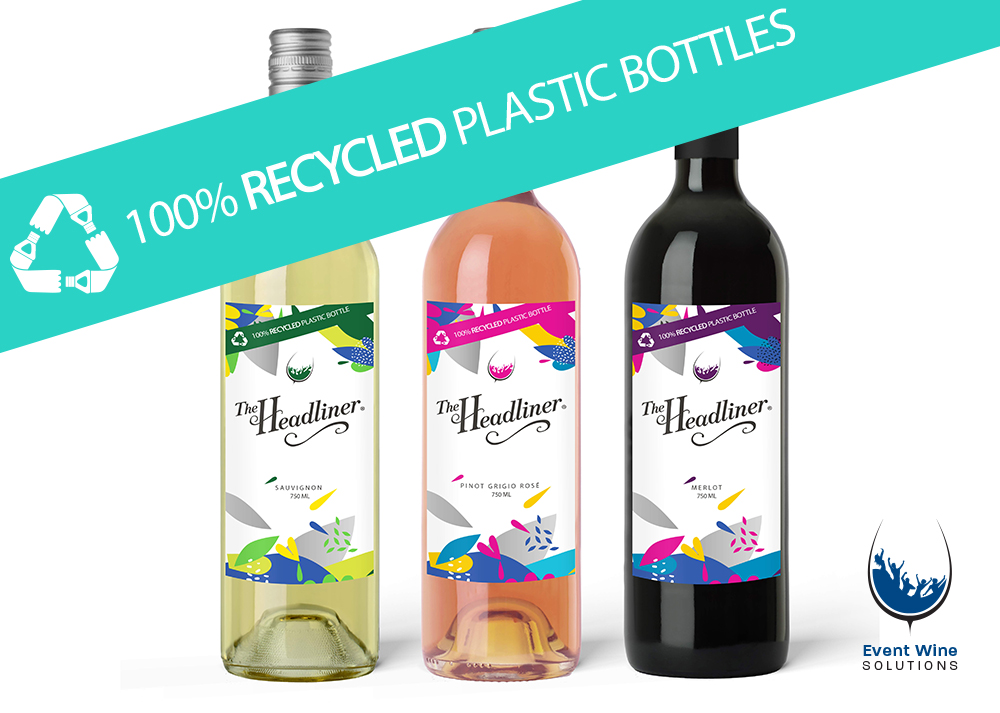
Linked to the above, finding an alternative for plastic bottles (PET) is no easy task and something that brands have been looking into more seriously for the last 2-3 years.
Plastic is cheap, easily available, widely used… yet one of the biggest culprits (if not the single largest contributor) when it comes to sustainability impact and damage to the environment.
The issue with plastic is that it doesn’t break down easily due to the chemical bonds and manufacturing process. This means when plastic is discarded, it seriously impacts the environment for years to come, and by years we don’t mean millions but billions!
One solution that drinks suppliers have been looking to utilise is rPET.
rPET stands for recycled polyethylene tetraphyte. PET is one of the most commonly used plastics in manufacturing and is arguably the largest within the drinks industry. PET comes from the extraction of crude oil and is incredibly damaging to the environment, not only because of the manufacturing process but because of how long it stays in the environment once discarded.
The drinks industry is very much single-use, pop up and temporary events are a huge category and both the on and off-trade is focused primarily around single-use. While we are not yet at a stage where PET can feasibly be removed from the supply chain, rPET is definitely a good stop-gap.
The “r” in rPET stands for recycled. This means that this kind of plastic is not only manufactured from recycled PET but it can then also enter the recycling cycle again after use to be further utilised.
This helps to combat the issue of plastic being discarded after use impacting the environment and starts a cycle to keep reusing it to minimise the environmental impact. At the moment, most brands using rPET will be in the form of 60% – 80% rPET – which is better than nothing.
The likes of Headliner wine though, use 100% recycled PET in their production meaning they are not only tackling the issue of plastic waste, they are also combating the heavy use of carbon emissions through glass bottles in the wine category.
Find out more about The Headliner’s 100% recycled bottles
6. Recycled Ingredients
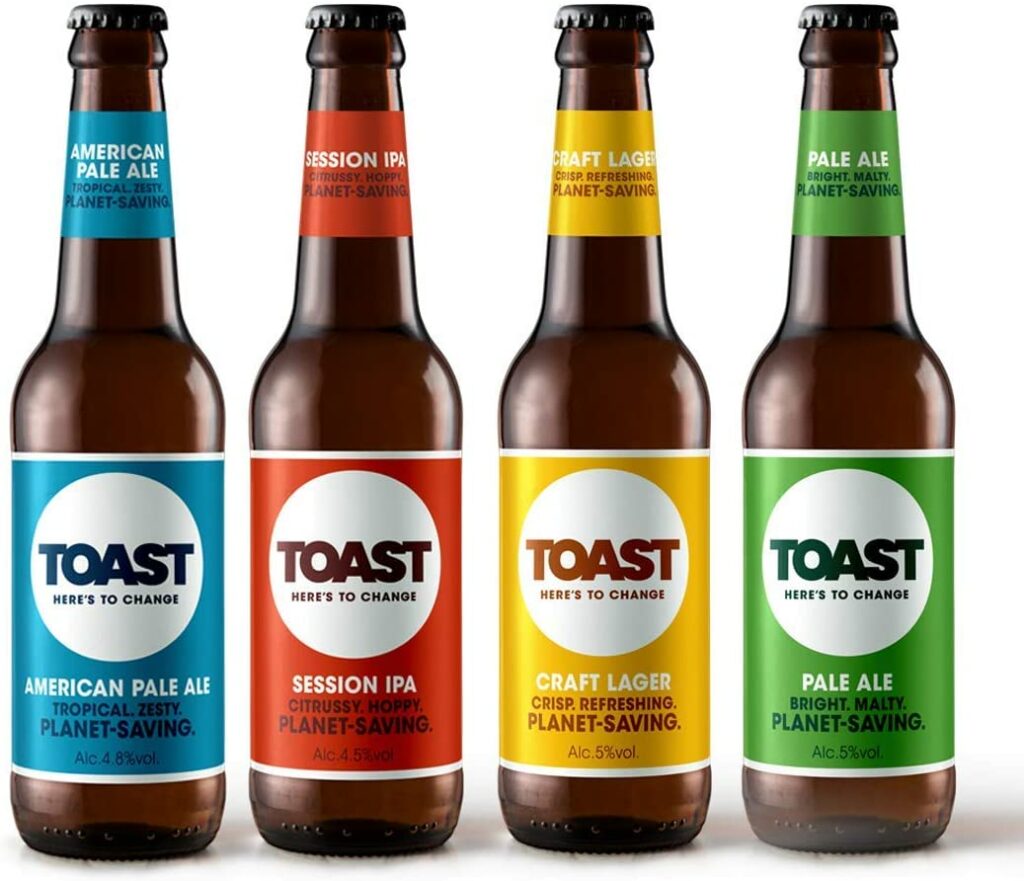
A common issue facing the hospitality and events industry is waste. While food waste is often cited as a large issue, we can’t neglect the waste that occurs due to packaging and production within the drinks segment of this industry.
Some brands are tackling this head-on though and are teaming up for cross-sector recycling initiatives. The best of which we’ve seen is the use of discarded or waste items being used in the production of alcohol.
Food production is the biggest contributor to climate change with waste in particular accounting for around one-third of this. There are some drinks brands that are therefore creating initiatives to combat this, particularly from the food waste element.
Toast Ale is a well-publicised brewer in the UK because of its brewing process. Toast Ale creates beer from surplus bread to replace some of their malted barley. They use the heel end of loaves that would otherwise be discarded in the sandwich industry and work with main players like Adelie Foods.
To date, Toast Ale has saved 2,488,076 slices of bread from going to waste and equates to 42 tons of carbon emissions saved.
Seven Bro7hers, a Manchester-based brewery, have also created a line of craft beers after teaming up with global cereal producer Kellogg’s to upcycle cereal and use the discarded grains to replace some key ingredients within their different brewing processes.
Corn Flakes are used to replace some of the wheat grain, Rice Krispies are used to replace malted barley, and Coco Pops are used to replace malted barley in another line.
This reduces the amount of discarded cereal going to landfill sites and is all the more impressive given that Seven Bro7hers are a microbrewery yet have teamed up with a huge international company clearly demonstrating how sustainable initiatives can be tackled when companies work together – regardless of their size.
Finally, another company utilising the upcycling process for food waste is Discarded Spirits Co. They are using discarded food to tap into the cocktail market and make cocktails more sustainable which tackles a different part of the drinks industry.
By using discarded banana peel to create a sustainable rum, wasted fruit from coffee berry to create a Vermouth and even grape skin discarded in wine production to create an eco-friendly vodka, Discarded are adopting a progressive and pioneering approach to alcohol production within the cocktail industry that can easily be adopted by other brands in the coming years.
Final Thoughts on Drink Brand Sustainability Initiatives
Anyone reading this will be involved in the drinks industry to some extent and we all have a responsibility to contribute however possible to reduce our carbon footprint, both as an individual and as a sector.
Therefore, it’s always good to keep on top of current sustainable initiatives within the industry to either piggyback on some of the ideas or at least share information with key people that can implement change.
Many more innovations are happening at a growing rate and with some of the smaller brands setting initial standards, the larger brands have since started to follow suit which is where we should see money facilitating even better sustainable initiatives over the next few years!
Following these trends has meant that The Cocktail Service has been able to take a proactive approach to sustainability, removing single use plastic from our operations.
Our expertise has led to us working with leading brands such as Stoli Vodka, helping them create and implement sustainable practices across the industry.
Share
Get In Touch With Our Team
Speak To One Of Our Team Today Get in touch
